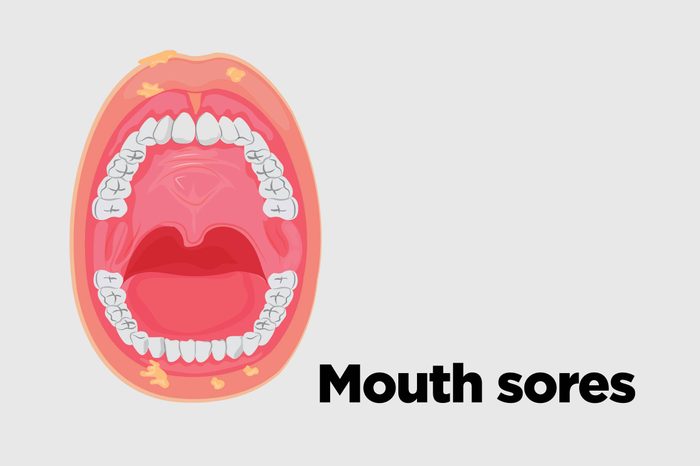
Mouth sores
Most of the time, a mouth sore will be something benign like a canker sore or an abscess caused by a virus. Those generally get better within ten days, though, so a sore that sticks around for two weeks or more could be a sign of something else, says Brian Burkey, MD, a head and neck oncology specialist with the Cleveland Clinic in Cleveland, Ohio. The sore’s texture can also give you a clue as to whether it could be oral cancer. “Most abscess ulcers are quite thin and soft, whereas tumors are thicker and hard,” says Dr. Burkey. Plus, ulcers and canker sores rarely bleed, while tumors bleed frequently. If it turns out to be benign, check out these 11 remedies for canker sores.
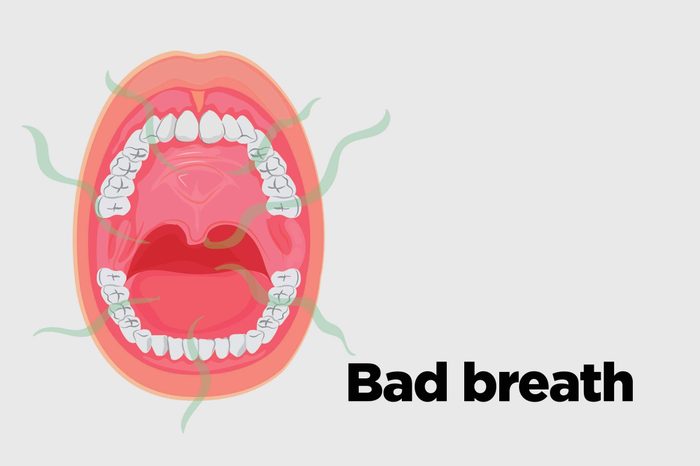
Bad breath
As an oral cancer tumor outgrows its blood supply and forms an ulcer, bacteria could infect the sore, says Mark Persky, MD, a head and neck tumor management specialist at NYU Langone’s Perlmutter Cancer Center in New York. Those bacteria leave a foul smell that, unlike your typical morning breath, won’t go away when you brush your teeth. Plus, pain in the mouth might make it difficult to swallow. “You build up bacteria in the mouth that typically get flushed out with swallowing,” says Dr. Persky. “The bacteria that stay there are producing gasses that produce bad breath.” Even if something less scary like tonsillitis or these 12 causes of bad breath are behind the stench, there’s no harm in checking in with your doctor if the bad breath sticks around for more than two and a half weeks, says Dr. Burkey. Find out what else your bad breath could say about your health.
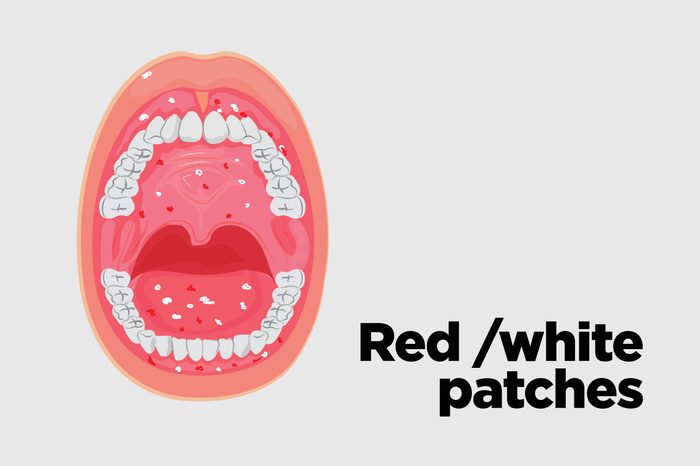
Red or white patches
A red or white patch that crops up on your gums, tongue, or other areas in your mouth could be a signal that a tumor could develop, says Dr. Persky. Seek medical attention if it lasts longer than two weeks, especially if you notice a firm sore in the surrounding area, suggests Dr. Burkey.
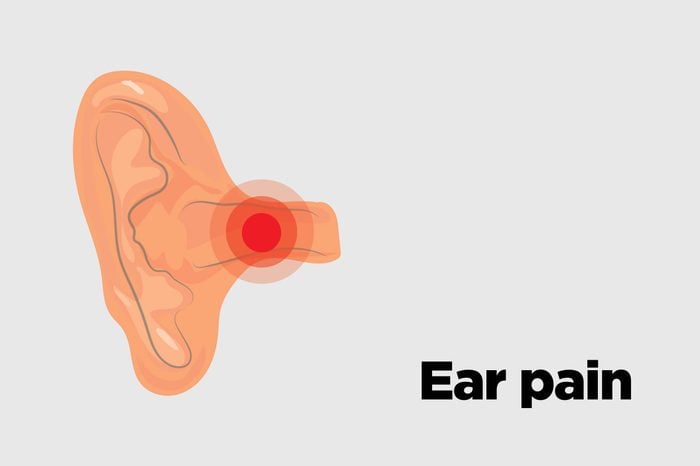
Ear pain
Ear pain that only affects one side of your head might have nothing to do with the ears themselves. The nerves that give feeling to your tongue, back of your mouth, and voice box are also linked with your ear. “You’re getting pain there because the pain refers back,” says Dr. Burkey. Ear infections are already uncommon for adults, and they tend to affect both sides. If you have persistent pain in just one ear, see a doctor. Even if it’s something innocent like swimmer’s ear, your doctor can provide treatment. If it isn’t anything serious, try these 9 home remedies for earaches and ear infections.
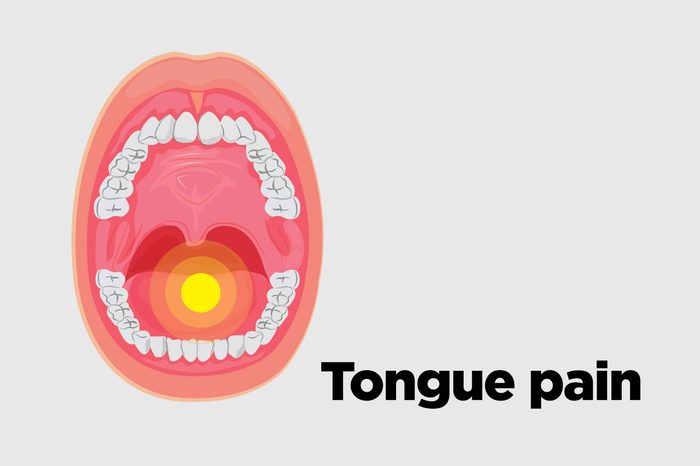
Tongue pain
Pain from a lesion or growth on your tongue could be particularly excruciating. “The tongue is exquisitely sensitive,” says Dr. Burkey. “The tongue is like your fingertips in terms of sensitivity.” Check out these 9 secrets your tongue can reveal about your health.
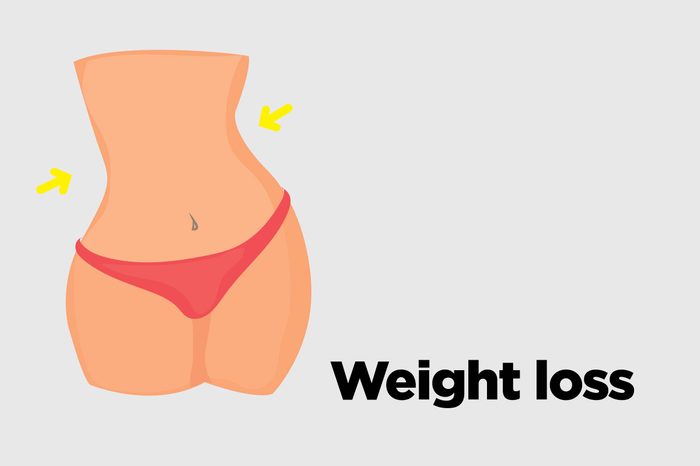
Weight loss (when you weren’t trying)
That tongue pain—or other mouth pain from oral cancer—make chewing and swallowing painful. You might find yourself naturally eating less to avoid the pain, and lose weight in reaction, says Dr. Persky. (Here are 20 more diseases that could be behind unexplained weight loss.) In rarer cases, unexplained weight loss could also be thanks to a tumor that has spread to the liver or other areas. As the cancer advances and starts using up more of your calories, you’ll find pounds dropping off even without changing your eating habits, says Dr. Burkey. Don’t miss these other 15 cancer symptoms women are likely to ignore.
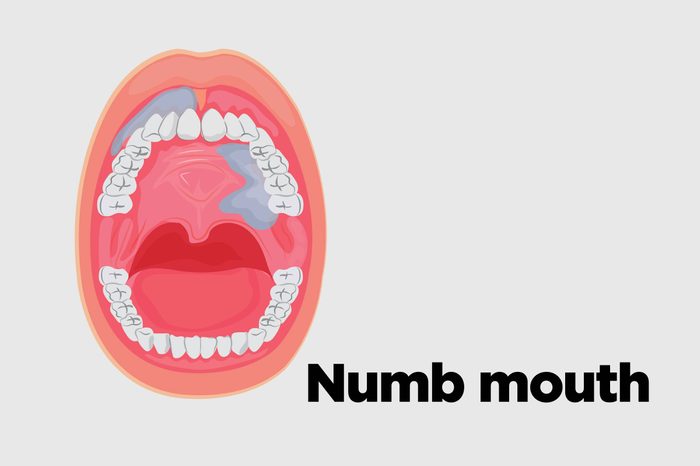
Numbness in the mouth
If an oral cancer tumor gets big enough to injure a nerve in your mouth, you could notice numbness in an isolated area of your mouth, says Dr. Burkey. The numbness won’t come out of the blue, though. You’ll probably have felt pain from the tumor itself for months before it spreads to that point, he says.
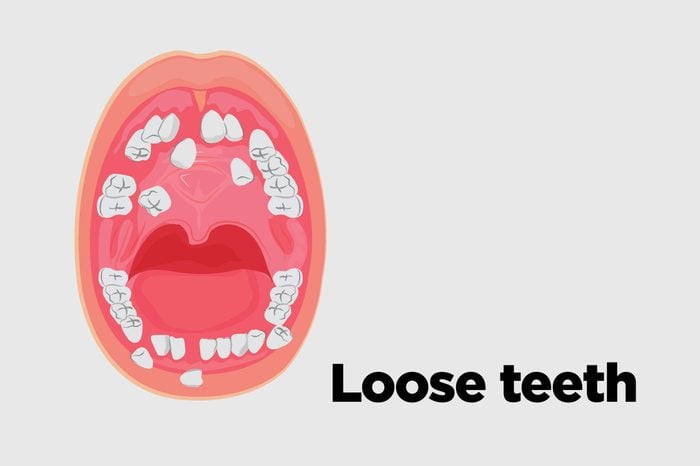
Loose teeth
A tumor on the gums can affect the area where your teeth are anchored, causing one or two teeth nearby to loosen, says Dr. Persky. Most tooth problems have to do with the state of your teeth themselves rather than cancer, says Dr. Burkey. (Here are 7 more diseases your teeth can reveal.) If tissue remains after your dentist pulls out a loose tooth, he or she might give a biopsy to make sure it isn’t malignant.
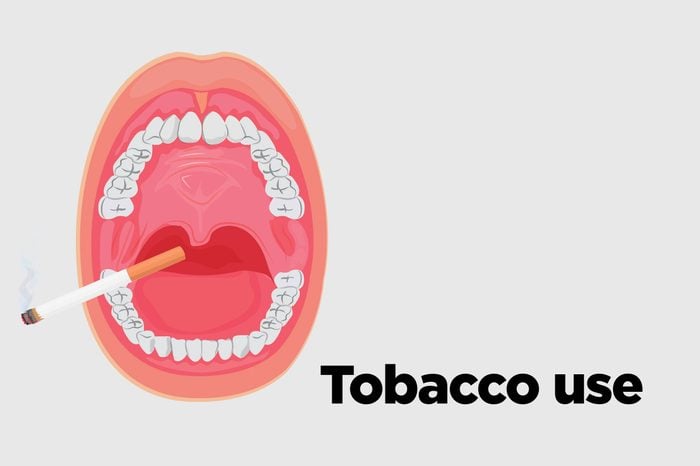
Tobacco use
Both cigarettes and chewing tobacco raise your risk of oral cancer. Up to 80 percent of people with oral cancer use tobacco, and smokers have a ten times higher risk of oral cancer than nonsmokers, according to the NYU Oral Cancer Center. (Use these 23 tips to stop smoking for good if you’re having trouble kicking the habit.) Cigarettes, cigars, and pipes can cause cancer anywhere in the mouth, while chewing tobacco and snuff are linked with cheek, gum, and lip cancers, according to the American Cancer Society. Pairing tobacco with heavy drinking compounds the risk even more. Need more motivation to quit? Here are 15 mind-blowing ways your body heals when you stop smoking.
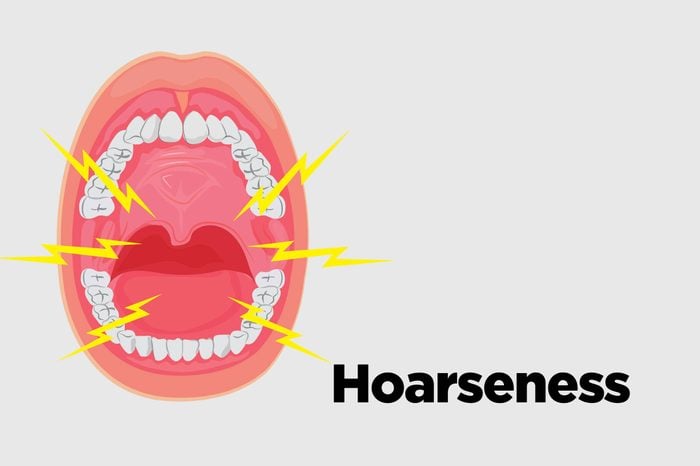
Hoarseness
Yes, smokers are more likely to have oral cancer, but this isn’t the typical raspy voice you’d expect from a chain smoker, which develops gradually over the years. If you suddenly get hoarse for two weeks or more, it could be a sign that oral cancer is affecting your voice.
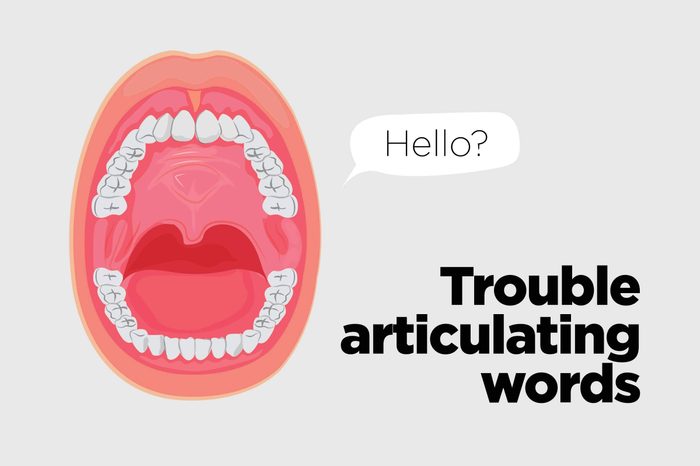
Trouble articulating words
Oral cancer affecting the tongue could make talking painful or could make it harder to simply move your tongue. When either of those happen, you might notice you have trouble enunciating words that you’ve never had trouble with before, says Dr. Persky. Check out these other 13 cancer symptoms men are likely to ignore.
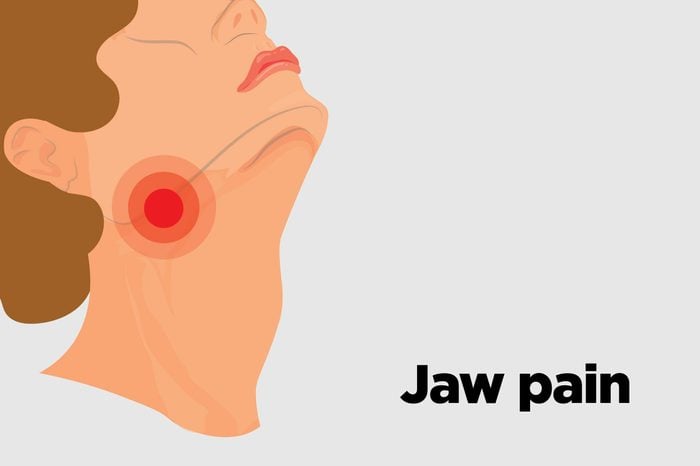
Jaw pain
Oral cancer can make your jaw hurt when you open your mouth. It might look like lockjaw, but the pain will get worse the more you open your mouth, says Dr. Persky. Head to the doctor if the pain doesn’t get better within two weeks. Here are 6 more common causes of jaw pain.
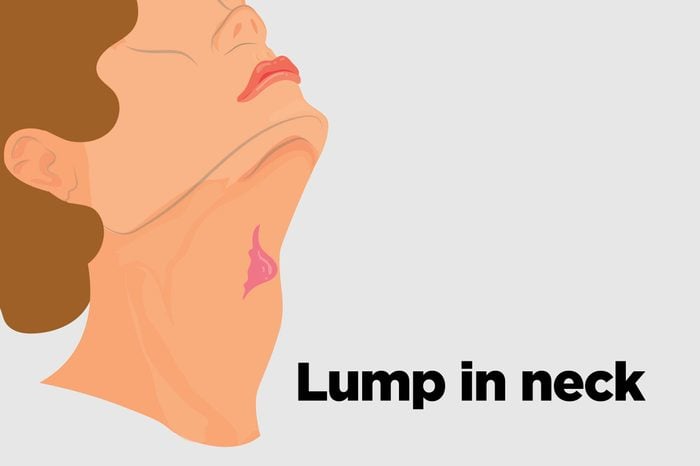
Lump in neck
“A lump in the neck in someone over 40 is cancer until proven otherwise,” says Dr. Burkey. When oral cancer spreads, the lymph nodes are typically the next place to be affected, though you will likely notice symptoms in your mouth before a lump in the neck, he says. The cancer will typically stop there before spreading further, but alert your doctor if the lump doesn’t go away after two weeks. Don’t miss these 6 signs of throat cancer you shouldn’t ignore.